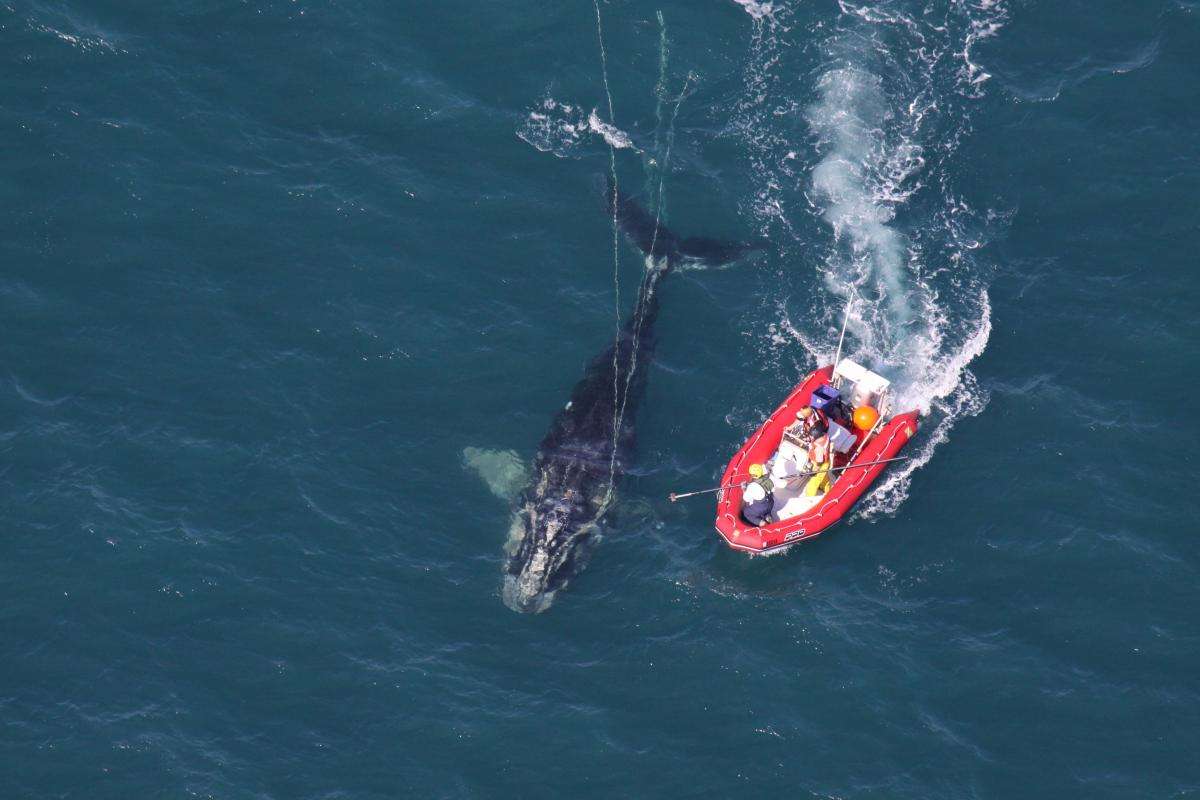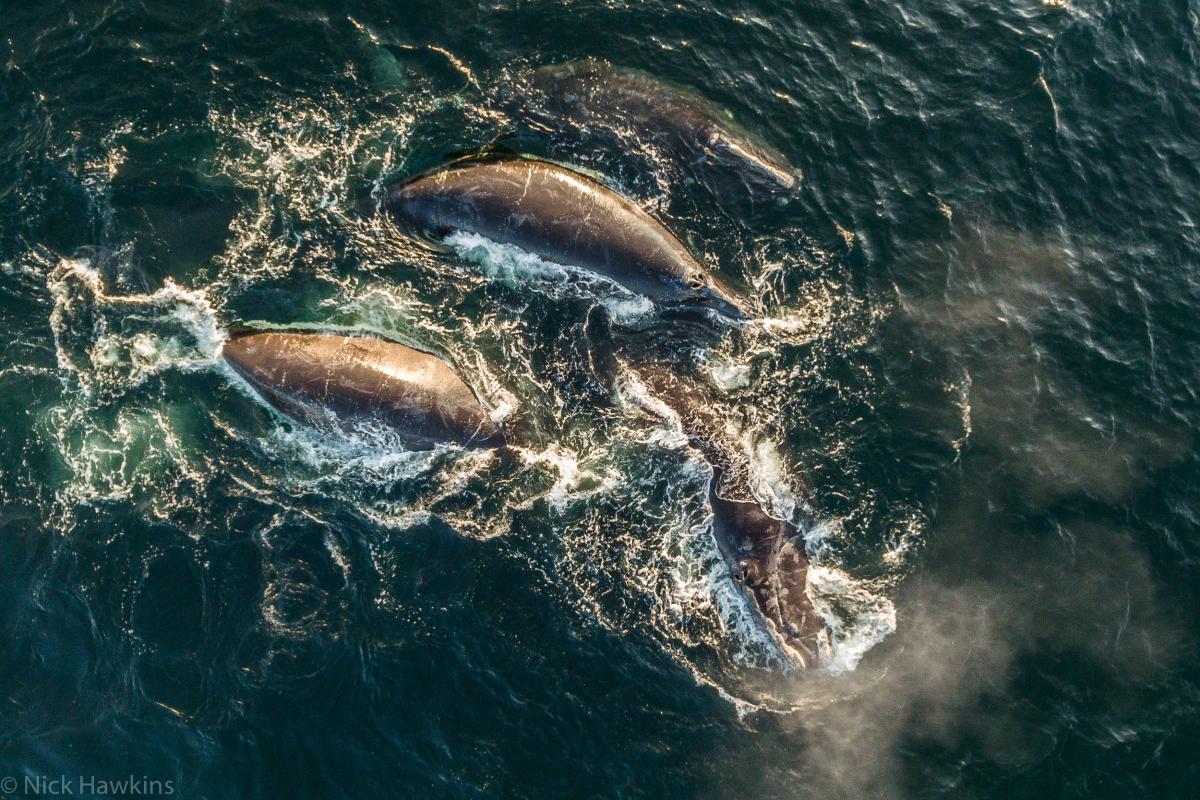February 28, 2020
Right whale to hunt, right whale to save, right thing to do
Estimated reading time: 0 minutes
Right whale to hunt
North Atlantic right whales are one of the most endangered whales on the planet. Named for being the “right whale to hunt”, they were hunted to the brink of extinction and have never fully recovered from the days of commercial whaling.
Though killing North Atlantic right whales has been banned since 1935, today only about 400 individuals remain and the species is veering toward extinction due to threats from ship strikes and entanglements in fishing gear. Too often, these encounters with humans are fatal. At least 30 whales died between 2017 and 2020, dealing a devastating blow to a species that can’t afford to lose any more members.
More recently, a newborn North Atlantic right whale off the coast of Georgia was spotted with severe injuries to its head and mouth. The likely culprit? A run in with a boat’s propeller. Unfortunately, this calf hasn’t been seen for weeks and experts are fearing the worst.

Right whale to save
These whales are facing a crisis caused by humans, but their deaths are preventable.
Everything possible must be done to protect these whales. Not only are they intrinsically valuable, but whales have a surprising role to play in the fight against climate change. They provide nutrients for phytoplankton (which create oxygen and absorb carbon dioxide) and can capture the same amount of carbon dioxide in their bodies as 30,000 trees!
If we don’t act now, we risk watching one of the largest marine mammals disappear from our oceans for good. North Atlantic right whales need protection from human activities that kill them. It is critical to their survival.
Oceana is working together in Canada and the U.S. to address this urgent issue with the governments that manage the waters that these whales call home. We are focused on the key threats to right whales’ survival at this critical time for the species: fishing entanglements and ship strikes. Oceana’s goal is to prevent every single avoidable death.

Right thing to do
Yesterday, Fisheries and Oceans Canada and Transport Canada released their 2020 management measures for North Atlantic right whales.
The government is continuing to implement measures to protect right whales from ship strikes and entanglements that are adaptive based on the location of the whales as they return to Canadian waters in early spring However, the success of these measures depends on surveillance – how we detect the whales.
“Fishing zone closures and speed requirements for vessels are triggered based on whale sightings, so we strongly urge the government to step up surveillance,” said Kim Elmslie, Oceana Canada’s Campaign Director. “Oceana Canada supports the announcement that in addition to aerial surveillance, the government will now use acoustic detections using hydrophones and a drone to help detect whales.”
A new voluntary speed reduction in the Cabot Strait is promising, but it needs to be a mandatory measure if the government is going to be serious about protection. Additionally, the government needs to develop an emergency response plan in case a whale is killed this summer.
While overall we’re encouraged by the new measures to help reduce the likelihood of deaths in Canadian waters, more needs to be done to ensure their survival – it’s the right thing to do.
You can take action and tell the government you want to see permanent measures in place to protect North Atlantic right whales by signing our petition which will email the officials responsible for these decisions. To learn more, read our full statement on the new measures.

